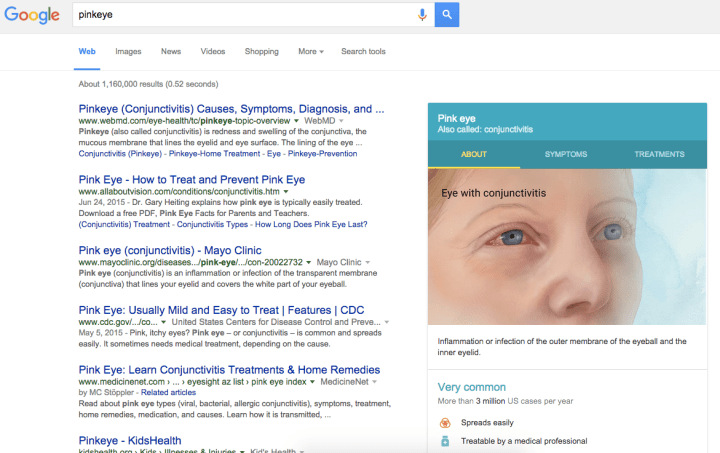
Prompted by the recent outbreak of Legionnaire’s disease in New York City, Google found that its search bars were suddenly inundated by concerned individuals checking for symptoms and looking for more information on the disease. As ever, the tech giant responded to the people’s whims, and “quickly updated [its] health conditions feature (first launched last February) to provide information on Legionnaires’ right up front, from a simple search.”
Thanks to a collaboration with the Mayo Clinic and a skilled team of health professionals, Google has seriously upped the ante on medical information. Whereas before, only 400 or so diseases and their conditions were readily available on Knowledge Graph, this number has more than doubled, and information is now easier to find and digest than ever. Moreover, Google is “making sure to include neglected tropical diseases, a set of infections that affect over 1.5 billion people including 500 million children in poorer regions.” And while today, much of the information is available only in English, the next step is to translate this valuable data into a number of languages to make it more accessible to a global population.
Of course, you shouldn’t forego the doctor altogether in favor of Google’s diagnoses, but this certainly provides users with important and timely information that may ultimately help in the healthcare process. So Google away, friends, and learn just what symptoms to be concerned about as the season begins to change.
Editors' Recommendations
- Here’s why you need to update your Google Chrome right now
- Should you buy the Google Pixel 6 or get an older model instead?
- Destiny 2 is going free to play on Google Stadia for all players with an account
- What you need to know about Epic Games’ feud with Apple (and Google)
- Google sued for allegedly tracking app users who opted out


